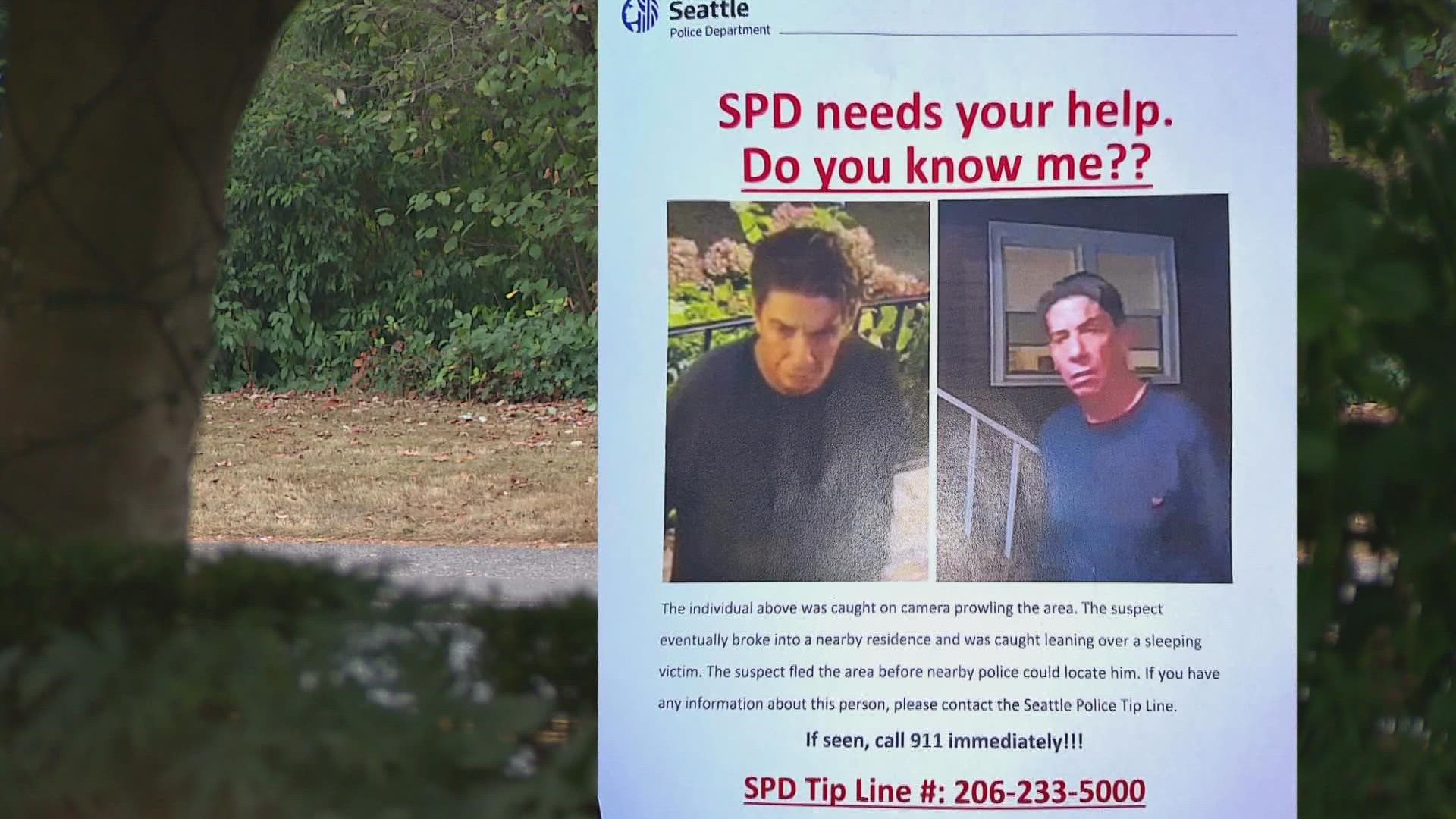SEATTLE — After the University District in Seattle saw an uptick in crime, some students were left wondering who else lived near them.
A man is accused of breaking into a University of Washington (UW) student’s home and assaulting her early Sunday morning. Police are still searching for him.
“That's really scary because it was just up the block from us," said Maddy Jenson, a UW student. "That could have easily been our house."
Last week, another Seattle man was arrested for the brutal murder of an Indigenous woman. Court documents show he lives on the same street as Sunday’s break-in.
Following the recent crimes, one student decided to learn more about who was living in the area.
"I did a national predator registry search to see how many registered sex offenders live in this area and there's like 25 within a mile of my house, which put me even more on edge,” said Kevin Baker, a UW student.
There are 10 registered sex offenders living on the 4700 block of 18th Ave NE, according to the National Sex Offender Public Website.
The man accused of killing Mavis Nelson is not one of them.
The street is filled with college students and Greek life housing.
“They can easily find a way in and just being so close to home it's like do I even want to go out tonight and you're looking over your shoulder going to class because you just never know,” Jenson said.
While it's near a university, most sex offenders are free to live where they want.
“I'm not aware of anything in our laws, the revised code of Washington or any municipal or county status that would prohibit that,” said Capt. Tim Meyer with the King County Sheriff’s Office (KCSO).
The sheriff’s office said there are instances where sex offenders live in the same house or area.
Records show most of the offenders living on the 4700 block of 18th Ave. NE are Level 2 or Level 3, meaning they have a risk to re-offend.
The King County Sheriff’s Office oversees offender compliance with housed and unhoused offenders.
Unhoused Level 2 and 3 offenders must check in with the sheriff’s office weekly. Housed offenders must check in less so.
“If you're a Level 1 sex offender, you’re going to see the sheriff’s office at least once a year, Level 2 will be checked every six months, Level 3 will be done quarterly by one of our commission members,” Meyer said.
According to the Department of Corrections (DOC), two offenders have been approved to live on the street through court-ordered supervision.
The DOC said it will approve an address that ensures they are not housed in violation of their court-ordered or DOC-imposed conditions or placed somewhere at the risk of reoffending.
The DOC requires supervised individuals to report to the department at least once a month but it could be upwards of three or more times a month depending on their assessed risk level.
The KCSO assists with offender assessment.
The DOC said it has no information about previous issues with UW students on that street.
“I understand the frustration of folks and the concern you have," Meyer said. "Those that have children who are in college or about to be in college this causes us pause and understandably so."
A UW spokesperson released a statement that read:
“Under state law, sex offenders who are meeting the terms of their parole or release may reside where they choose, as long as they register. The University of Washington is aware that there are registered sex offenders living in the areas around the Seattle campus, and we understand this can cause concern in the community. The UW has no jurisdiction or ability to limit their proximity to campus. Anyone perceiving a threat or in an emergency should call 911 immediately.”
The KCSO is encouraging people to be vigilant and check its sex offender registry to be mindful of who lives nearby.
Seattle police have added emphasis patrols to the U District neighborhood from Wednesday to Sunday.
Students who live on 18th Ave Northeast have noticed more patrols.
“It does make you feel better that if something does happen they are so close and you can run to help because there's a lot of times you'll go out at night and there's no one out on the street and that's when it's really scary,” Jenson said.

